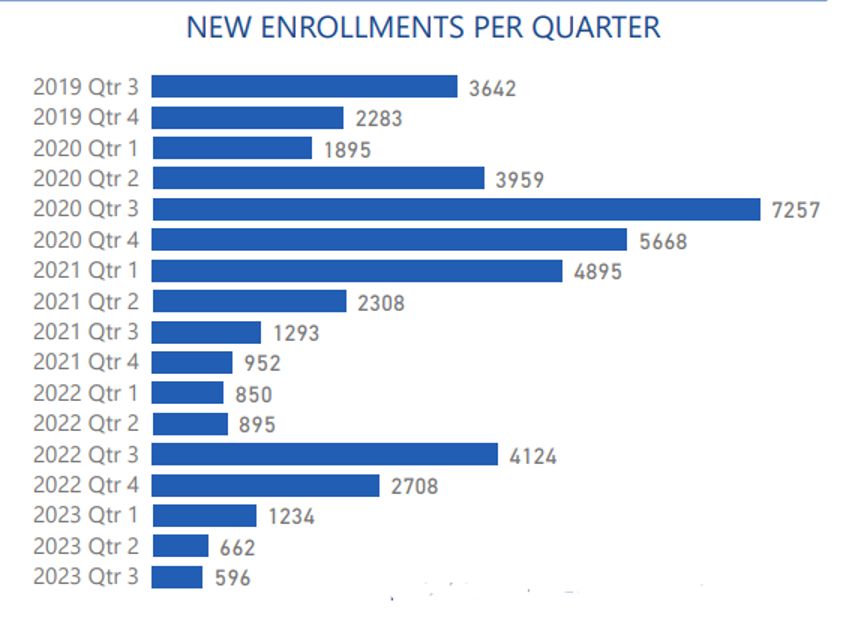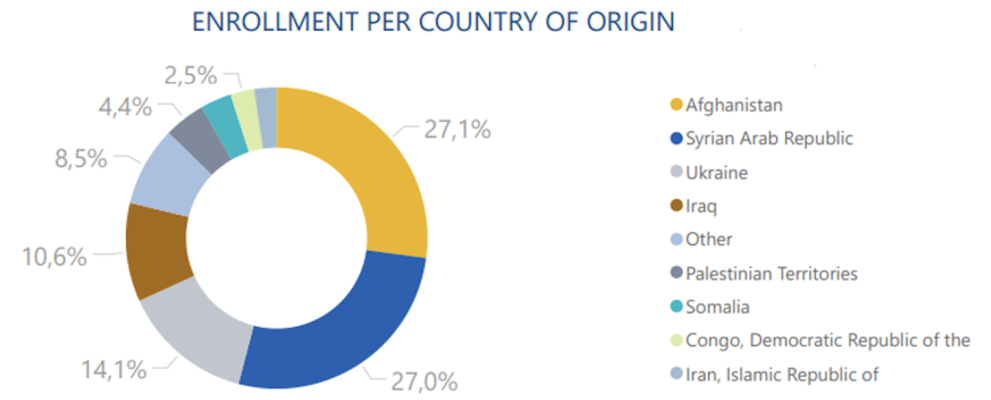Implemented in temporary accommodation centres throughout the country, IOM Greece's Hellenic Integration Support for Beneficiaries of International Protection (HELIOS) project supports the integration of beneficiaries of international protection and beneficiaries of temporary protection by providing:
- integration courses;
- accommodation support;
- employability support;
- integration monitoring;
- sensitisation of local communities, highlighting the value of integration
Photo credit: HELIOS Project
Project Goal
The project enhances the integration system in Greece by:
- increasing beneficiaries of international and temporary protection’s self-reliance and supporting them to become active members of the Greek society;
- supporting the Greek authorities in establishing a sustainable integration mechanism for beneficiaries of international and temporary protection, as part of the overall Migration Management System in Greece.
Photo credit: HELIOS Project
How it works
Focused on five areas of integration, the project works as follows:
- Integration courses: HELIOS provides courses at Integration Learning Centres (ILCs) set up across Greece. Each six-month course includes modules on Greek language (280 hours), and soft skills such as cultural orientation, job readiness and life skills (80 hours); the courses are open to beneficiaries who are at least 16 years old.
- Accommodation support: HELIOS helps beneficiaries of international and temporary protection to find accommodation in apartments rented in their own name, including by providing contributions to rental and move-in costs, and through networking with apartment owners (see details and amounts in the attached handbook).
- Employability support: Individual employability and job-readiness support is provided; this is achieved through job counselling, providing access to job-related certifications and networking with private employers.
- Integration monitoring: HELIOS regularly assesses of the integration progress of the beneficiaries in order to ensure they will be able to confidently navigate Greece's public service providers once the project ends.
- Sensitisation of the host community: The project leads workshops, activities and events - as well as an upcoming national media campaign - in order to increase the interactions between the migrants and the host communities, highlighting the value of the integration.
Photo credit: HELIOS Project
The project is implemented in temporary accommodation, and in Integration Learning Centres across Greece.
Adult beneficiaries of international protection have to sign a Declaration of Participation.
For details, see the project's rules in theProject regulations handbook for beneficiaries of international protection, as well as in the Project regulations handbook for beneficiaries of temporary protection.
Results
The project has proved successful.
In the period between 16 July 2019 and 30 November 2023, a total of 45 221 beneficiaries were enrolled in the HELIOS project. Out of them, 23 377 received rental subsidies upon finding independent housing.
In addition, since the beginning of the HELIOS project in June 2019, more than 21 500 job counselling sessions have been conducted to the benefit of about 7 500 adults. It is further estimated that about 4 600 beneficiaries who have attended HELIOS job counselling sessions have found employment (or 62% of the people who participated in job counselling sessions, based on a recent survey). In addition, more than 2 600 beneficiaries have received support in registering with the Greek Manpower Agency (DYPA), while more than 5 000 have attended the 46 job fairs, conferences and other employment-related events organised within the scope of the project.
The participants' women-to-men ratio is 46.8 to 53.2%.

Image credit: HELIOS Project

Image credit: HELIOS Project
Evaluation
In addition to the results presented above, evaluation of the individuals' integration progress is embedded as one of the projects ongoing activities, as noted above. Meetings are regularly scheduled with the beneficiaries. During them, the project's participants can raise us issues and problems they face related to their integration, and can also provide feedback about the HELIOS project activities.
See below Working Together Towards Integration, a video including different beneficiaries and partners involved in the HELIOS project.
Who benefits
The target group of the HELIOS project includes beneficiaries of international protection recognised after 1 January 2018, as well as beneficiaries of temporary protection in relation to Implementing Decision (EU) 2022/382 of the Council of the European Union.
Funding and resources
As of 1 January 2022, HELIOS has been funded by the Greek Ministry of Migration and Asylum. The funding for the project is currently extended until 30 July 2024.
Before that, up until 31 December 2021, the project was funded by the European Commission's Directorate-General for Migration and Home Affairs (DG HOME).
In addition, the initiative is implemented with the help of the following partners: Catholic Relief Services (CRS), Danish Refugee Council Greece (DRC Greece), Greek Council for Refugees (GCR), Solidarity Now, INTERSOS, Municipality Development Agency Thessaloniki S.A (MDAT), Metadrasi, PLOIGOS, KEDHL.
About this good practice
- Project dates
- -
- Geographic area
- Greece
- Organisation
- IOM Greece
- Website
Details
- Original source
- Posted by
